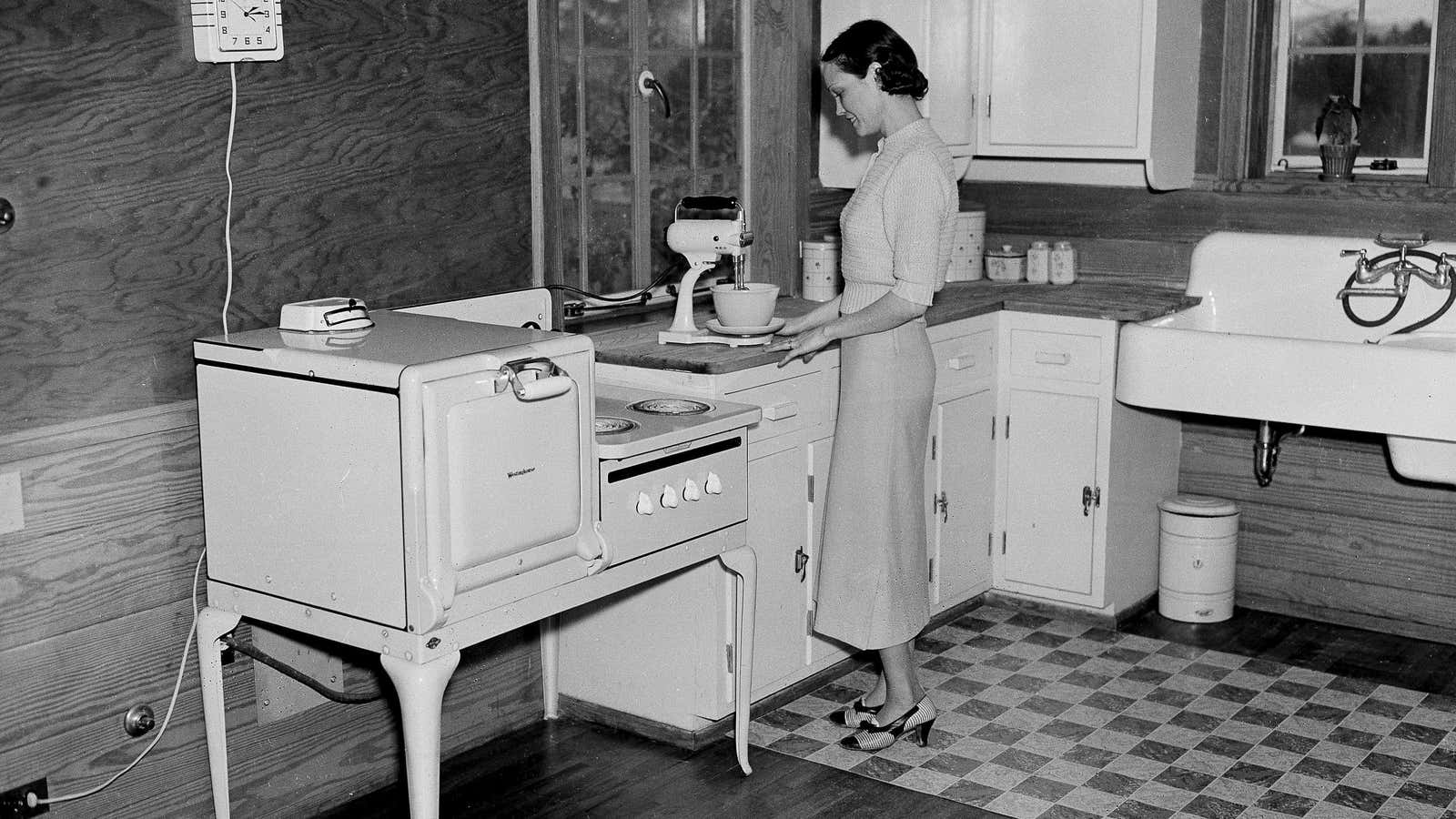There is a view among some social scientists that couples who share more housework have less sex. The idea is that sharing chores so challenges gender norms that couples can no longer turn each other on. Sex suffers.
Fortunately, new research offers a different narrative.
According to a new paper to be published in the Journal of Marriage and Family, couples who share more housework have more sex.
“Nationally, internationally there’s a decline in sexual frequency,” said Sharon Sassler, a professor at Cornell University and a co-author of the paper. “The only ones [couples] that are having more sex are in egalitarian marriages. The sexual scripts have changed.”
The authors, led by Daniel Carlson at the University of Utah, compared data from a 2006 marital satisfaction survey with older data from 1992-1994, which found that couples with more traditional set-ups—with women doing the bulk of the housework—have more sex.
The new survey showed things are changing: couples who reported sharing housework equally had sex 6.8 times per month, on average, or about once more per month than those where the woman does more “routine housework,” defined as: preparing and cooking meals, washing dishes, cleaning around the house, shopping for groceries, and doing laundry.
This is fantastic news for those of us who aspire to partnerships in which we share things like raising kids and cleaning toilets (hello 2016!). Having sex once more per month may seem measly, but something is better than nothing and it’s certainly an improvement on the view that sharing housework harms your sex life.
Of course, it’s not all sun and roses. Women still do a disturbingly high percentage of the work in the house. According to the 2006 survey, about 63% reported that the female partner did the majority of the routine housework, compared to over 80% of respondents from the older one:
Even in households where the female partner earns more than the male, is more educated, or works more hours per week, men do less routine housework than their partners.
Annoying. And backed up by Pew research survey here.
Of course there are things other than housework which affect a couples sex life, like kids and the quality of the relationship.
But housework plays a big role (ask any married couple) and the authors tried to figure out how significant that role was, and how it is changing. A lot, it tuns out: egalitarian couples had the lowest sexual frequency and satisfaction in the early 1990s. Today, they have the most sex, though not much higher than conventional couples. They are the only group whose frequency is growing.
Sassler says the popular storyline, captured in a 2014 New York Times magazine cover story, is that contemporary couples are stressed out and miserable. “It’s weird and exaggerated,” she said, adding:
There’s been a lagged response to women’s transition into the workforce. Initially it was stressful. It affected relationships. We’ve had a few decades to educate each other about the stresses we went through, and we are coming out okay.
There is a basic logic at work here. Couples who have more egalitarian relationships are happier, and happier couples tend to have more sex. Fairness matters, be it housework, child care, and just about everything else.
The study had some not-so-great findings too. Couples in which the man does the bulk of the housework have significantly less sex than those in conventional or more egalitarian pairings (the study did not look at same-sex couples). And while sexual satisfaction varied little between conventional and egalitarian couples; counter-conventional couples, those in which he does the bulk of the housework, were more dissatisfied with their sex lives compared to those in other arrangements.
Clearly something weird is going on that men cannot wash a lot of dishes without everyone’s libidos taking a hit (Sassler says the sample was small, and that some men might not be home by choice, but because they are unemployed).
One thing that has not changed: Men in both surveys were more likely than women to say that routine housework was shared equally; women said it was more likely that they were doing the majority of the work. Some things never change.




